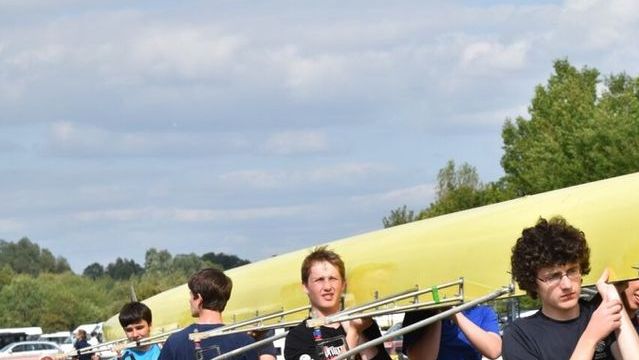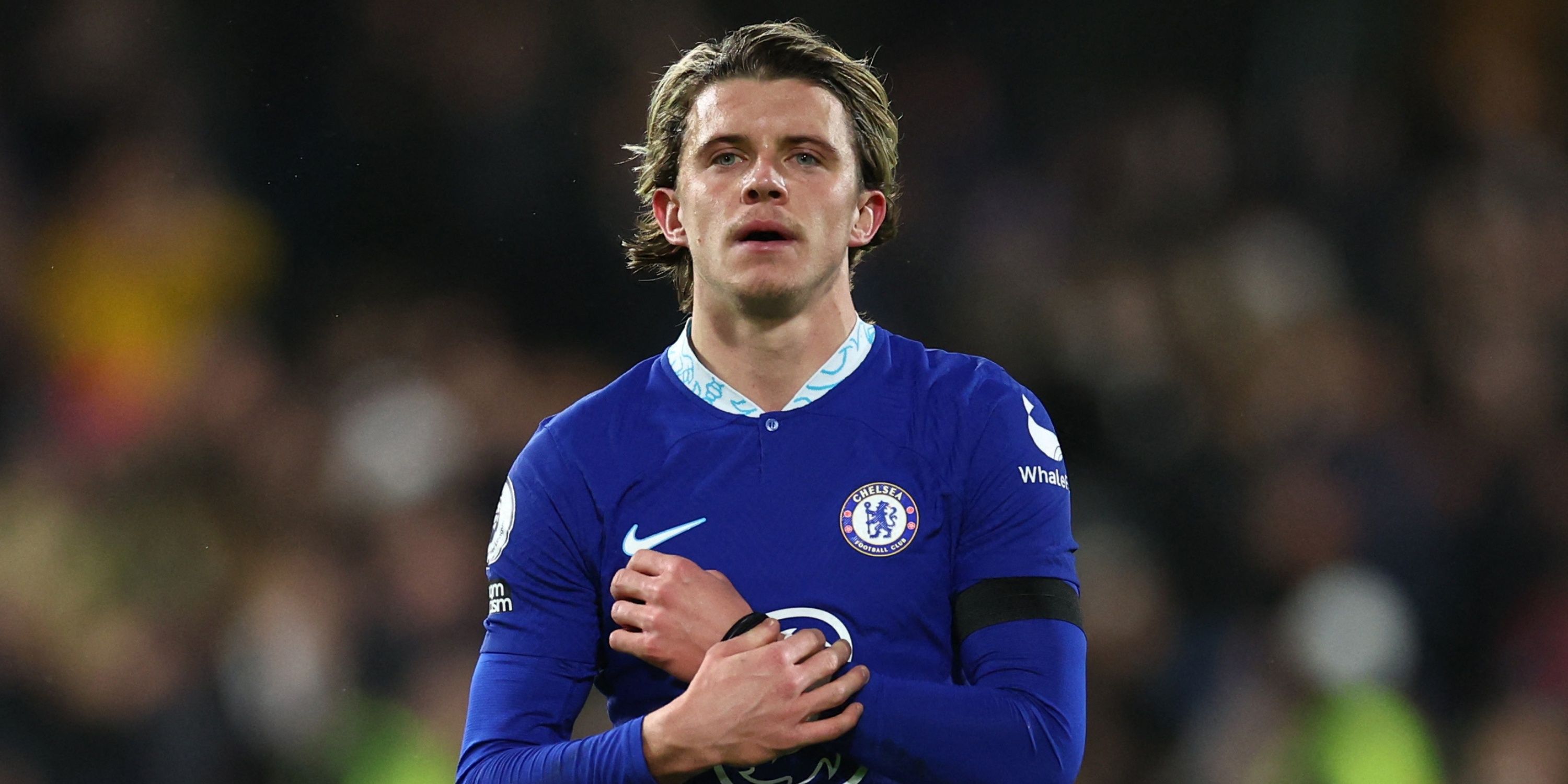Alex Inglethorpe and the ‘four elements’ that define Liverpool’s thriving academy

Alex Inglethorpe is looking back over a productive season for Liverpool’s academy when a smile creeps across his face.
“My abiding memory would probably be watching James Milner working with our under-14s one night in March when we had heavy snow,” he says.
“After the session, he was teaching the boys how to do sit-ups properly as he had noticed a few of them not doing it right. It was freezing. I was like, ‘Wow, there’s dedication and then there’s dedication’.
“Millie has been an incredible role model and example for all the young players. Our under-14s, 15s and 16s all had the pleasure of his company over the past two years as he set about completing his coaching badges. He’ll be missed.”
The academy manager has just returned to his office after making the short walk across to the training centre to say goodbye to long-serving vice-captain Milner, who is joining Brighton & Hove Albion with his Liverpool contract expiring this month.
During 45 minutes in Inglethorpe’s company, a wide range of topics are covered — from Trent Alexander-Arnold’s new role to Curtis Jones’ resurgence, the rise of Stefan Bajcetic and the exciting potential of Ben Doak. He also explains the “four elements” which define the work of the academy, why flash cars and fancy watches are off-limits there, and why less is more when it comes to the overall number of youngsters learning their trade under him.
Alexander-Arnold is the poster boy of Liverpool’s academy.
At the age of 24, he has clocked up 273 appearances for his boyhood club and won a stack of medals. However, he had to deal with plenty of adversity throughout last season, with his form under scrutiny as Liverpool struggled.
He was re-energised on the run-in after manager Jurgen Klopp moved him into a new hybrid role. Still the team’s right-back when Liverpool defended, he stepped into midfield alongside Fabinho when they were in possession. He provided seven assists and scored once in 10 games after this positional shift.
“In a perverse kind of way, I enjoyed watching Trent this season more than in any other,” says Inglethorpe, who has a close bond with Alexander-Arnold.
“This was arguably the biggest bump in the road he’s had. It’s been one where he’s had the most critique around his game. It’s been the season where he’s had to show the most character. He will learn a lot from it. It wasn’t an outstanding season for him in terms of medals and trophies, but it was in how he’s had to overcome some serious criticism. I enjoyed seeing how he’s responded to that, how he dug deep and answered some of the questions asked of him.”
Inglethorpe wasn’t surprised by the ease at which he adapted — Alexander-Arnold used to play in midfield for Liverpool Under-16s when they were managed by Klopp’s now first-team assistant, Pep Lijnders.
“One of the great things with Trent when he was coming through was that he played as a full-back, centre-half, right-wing, midfield… It was never nailed down to one position,” he says.
“We settled on right-back because we felt there was an opportunity there for him to go into the first-team squad and make an impact. He’s a talented footballer who could approach a lot of positions on the pitch and be successful.
“Some people need to have a number tattooed on their back (as that’s the only position they can play), I’m not sure Trent does.”
It was some turnaround for Jones. His 2022-23 season was largely wrecked by a stress response in his shinbone and by the end of March he had made just two starts in all competitions.
Klopp handed him a recall for the trip to Chelsea in early April and he never looked back. He ended the campaign by making 11 consecutive top-flight starts — the longest run of his Liverpool career. The technically-gifted 22-year-old midfielder grew in stature, getting a goal in the dramatic 4-3 Anfield win over Tottenham and then twice scoring in the 3-0 victory away to Leicester.
“Curtis more than played his part towards the back-end of the season and showed everyone what he can do,” Inglethorpe says.
“The team playing a slightly different way, with Trent’s role changing, helped Curtis. His ability to play on the side or the middle of the pitch makes him really attractive. The system allowed Curtis to play as more of a hybrid midfield player — sometimes on the side as a winger, other times in the middle, other times arriving into the box, sometimes dropping deeper.
“People forget how young Curtis is. He’s only 22 but he’s played close to 100 games (97) for Liverpool. He’s only going to get better. He’s quick, he’s athletic, he’s really strong. All the pieces of the jigsaw are in the box. Carrying on that analogy, it takes a bit of time to put it all together. Not everyone is going to be able to show exactly what they can do at 19.”
If Alexander-Arnold and Jones had their struggles in 2022-23, it proved to be a remarkable breakthrough campaign for Bajcetic.
After being included in the first-team squad for the pre-season tour to Asia, the Spain youth international forced his way into Klopp’s plans. The manager described him as “a joy to work with”. Bajcetic went on to clock up 19 senior appearances — a figure that would have been higher but for the thigh injury that ended his season in March.
The now 18-year-old cost just £224,000 when his move from Spain’s Celta Vigo went through in January 2021. Inglethorpe was heavily involved in the decision to turn him into a holding midfielder having played predominantly at centre-back previously.
“I remember speaking to Stefan about it when we played Atletico Madrid away in the UEFA Youth League (in October 2021),” he says.
“We had a conversation about where he saw himself and where I saw him. With most young players, unless you get everyone aligned, it tends not to work. It was an easy sell. His dad, who was a player himself, saw him as a midfielder and Stefan was really open to the idea.
“The decision was based on his profile and attributes. I’m not sure he would have been suited to being a centre-half in the Premier League. We started playing him there last year with the intention that would give him the best possible way of progressing into senior football.
“But I don’t think you ever really know how someone is going to do until they step foot on a pitch in front of 50,000 or 60,000 people. You might really admire an academy player but there’s always a bit of you that reserves judgment until they’re out there with the seniors. Anyone who says differently is lying.”
Bajcetic’s rise is a source of inspiration for those academy youngsters he once played alongside. The upcoming pre-season will provide a stage for others to step up and catch Klopp’s eye in similar fashion.
“Absolutely. No one could have possibly anticipated at the start of the season Stefan playing 19 times,” Inglethorpe adds.
“One of the hard parts of being an academy player is you have got to be ready every single day without knowing when your chance will arrive. You go to bed at the right time, you eat the right food, you think the right thoughts (all) in the hope that’s the day you get called up and given your opportunity.
“That’s the hard bit. You have to live the life without knowing when your name is going to get called.”
Doak has enjoyed an excellent first season at Liverpool following his £600,000 move from Celtic.
The 17-year-old Scottish winger’s performances lit up the UEFA Youth League as he contributed four goals and four assists in eight matches. Doak also showcased his fearless nature during five substitute appearances for the first team, including two in the Premier League, and is expected to feature more next season.
“I love him. He’s got an infectious personality and I like watching him play,” Inglethorpe says. “He’s the type of wide player who gets at you. I’m not sure as a full-back you’d enjoy the experience of facing him. He likes going one-v-one and he’s relentless.
“We all accept his game needs to develop and there are loads of things he needs to get better at, but he’s exciting. I’m delighted with his first year.”
Academy youngsters Bobby Clark, Layton Stewart and Melkamu Frauendorf also graced the first team at various points.
“If you look at why we’re here, you’d say that the amount of exposure our young players had over the course of the season was fantastic,” Inglethorpe says. “We have to give a lot of credit to the first-team staff who made that happen.”
The academy’s mission is clear: develop players capable of helping Liverpool win trophies. But it goes deeper than that.
With the bar set so high, it is about ensuring those who do not quite make the grade with them are sold on for significant sums which can then be reinvested.
Neco Williams, who had been at the club since the age of six, went to Nottingham Forest for £17m last summer. Harry Wilson (£12m, Fulham), Rhian Brewster (£23.5m, Sheffield United), Ryan Kent (£7.5m, Rangers) and Danny Ward (£12.5m, Leicester) are among the others who have left for sizeable fees in recent years.
“There are four elements to what we do — four ways in which we judge ourselves,” Inglethorpe says. “The first element is to supply the first team with players capable of playing Champions League football. That’s important — look at Stefan. The second element is to try to create a value, because all the money from selling players goes back into supporting the first team.
“The third element is helping players. There’s maybe not a value to the club in terms of the balance sheet, but there’s a source of great pride when you look at the team sheets each weekend and see a lot of boys who have been through here playing in the football pyramid. The fourth element involves those players who leave the academy and don’t get employment as a footballer. You want to see them succeed and thrive in life, and you want the academy to have played a part in helping them.”
That fourth part is a topic close to Inglethorpe’s heart. He launched the club’s alumni project in 2020, to provide greater support to those who have moved on.
The programme has helped former players secure coaching and scouting qualifications, as well as providing financial advice. For the first time this summer, youngsters released by Liverpool are being offered independent psychological support to help them come to terms with leaving the club.
“If you spent a week here, you’d be astounded by how many ex-players come through the door,” Inglethorpe says.
“Another lot have just started their UEFA B (coaching) badge, including Ryan McLaughlin and Stephen Sama. We’ve got Jordan Lussey and Nathan Quirk in at the minute doing some coaching with us. Jack Walls is working for the LFC Foundation.
“Whether it’s to do a course, get some advice or just to say hello, I love it when they come back. We’re very lucky that these boys still see us as being relevant to their lives. I’m really proud of our alumni project and I’m sure it’s going to grow and grow. The intention is that, eventually, one of our alumni runs it.”
On a similar theme, Alexander-Arnold announced in April that he is launching the After Academy, an initiative focused on providing career opportunities to youngsters across England who have been released by club academies. Run in conjunction with the Professional Footballers’ Association (effectively the players’ trade union in England), Alexander-Arnold is funding the project himself.
“To have such a moral compass at such a young age is amazing,” Inglethorpe says. “Trent recognises that he’s one of the few who is fortunate enough that his life has changed significantly through football. He has the empathy to realise he’s in a small minority. A lot of the boys he came through the academy with are not living the same life. That adjustment isn’t easy. Trent wants to do something to help and that’s to be applauded.”
Teenage winger Kaide Gordon burst onto the scene in 2021-22. At 17 years and 96 days, he became the youngest player to score for Liverpool in the FA Cup when he netted on his home debut, against Shrewsbury Town, in the January.
A Premier League bow soon followed but then his progress was cruelly halted by pain in his pelvis. He missed the whole of last season after being diagnosed with adolescent musculoskeletal issues (growing pains).
“It’s been a really difficult season for Kaide. Possibly even harder given where he was when he got his injury,” Inglethorpe says. “But I’ve kept in touch with Kaide regularly throughout and I’d back him to find a way back to where he was. He’s certainly got the character to do that.
“As hard as it is, he probably just needs to reintegrate into the under-21s in pre-season, find his feet and see how he is. He’s got to learn to trust his body again and get his rhythm back. After that, anything is possible.”
Injuries, loan moves and players being promoted to either the first-team squad or Barry Lewtas’ under-21s contributed to Liverpool Under-18s fielding younger than usual line-ups for most of last season.
They finished sixth (out of 13) in the north section of their Under-18 Premier League, were knocked out of the FA Youth Cup at the last-16 stage by Ipswich Town and beaten by Sporting Lisbon in the UEFA Youth League quarter-finals. For Inglethorpe, though, the bigger picture is more important than match results.
“We played a lot of our under-16s in the 18s from early on, and that was a conscious decision,” he says.
“What was arguably our best under-18s team on paper never shared a pitch together. You could have had a back four of Isaac Mabaya, Wellity Lucky, Terence Miles and Calum Scanlon, with Stefan Bajcetic, Bobby Clark and James McConnell in midfield and, say, Kaide Gordon, Ben Doak and Lewis Koumas up top.
“Where we regularly had a strong team out was in the UEFA Youth League. Had we decided to keep that team together, I’ve got no doubt we would have progressed to the semis and perhaps the final.
“However, Jarell Quansah (who moved to Bristol Rovers of League One on loan in January) and Luke Chambers (loaned to Kilmarnock in the Scottish top flight in the same window) needed to get games. Stefan couldn’t play any more in the competition as he had played in the Champions League for the first team. There were good reasons why that team broke up.”
The loan system worked well for Liverpool, with right-back Conor Bradley blossoming at Bolton Wanderers as they made the play-offs in League One (English football’s third tier) and midfielder Tyler Morton shining one division higher for Blackburn Rovers.
“Conor, Tyler and Luke, I’d say that’s three great examples of how loans can really help development if you find the right club,” Inglethorpe says. “All three played a significant number of minutes. They will be of interest to the first team (for next season) or go out (on new loans) and gain further experience. It’s a good feeling when you see boys like that coping at senior level. You think, ‘We might really have something here’.”
As well as player development, the progression of academy staff is another source of pride.
Former Liverpool Under-21s assistant coach Gary O’Neil followed in the footsteps of Michael Beale, Neil Critchley and Steven Gerrard when he moved into senior management at Bournemouth early last season. Liverpool Under-18s assistant coach Tim Jenkins joined O’Neil’s backroom staff and together they did a remarkable job in guiding the promoted club to Premier League safety.
“Gary took over there at a really difficult time (Scott Parker was sacked in the wake of a 9-0 defeat at Anfield in late August). He had to navigate his way through a change of ownership and a period where he couldn’t change the squad prior to the (January) window,” Inglethorpe says. “The job he’s done at Bournemouth has been outstanding. There’s an argument that his name should have been in the conversation for manager of the year.
“I’m sure Gary would say that Jenks going there was a really positive addition to his staff. It was also a huge loss to us. Jenks was here for many years and will have a very bright future in the game. It was no surprise to me that they avoided relegation with relative ease given the quality of the people they brought in.”
It’s nearly nine years since Inglethorpe took charge of Liverpool’s academy.
During that period, the overall number of youngsters on the club’s books has reduced from around 240 to 180.
Inglethorpe has sought to address the ‘too much, too soon’ culture of English football. First-year professionals at Liverpool receive a basic salary of £52,000 per year once they turn 17. Contracts are heavily incentivised to ensure progress is rewarded.
“I’m not embarrassed to offer them what I offer them. I’m sure there are clubs out there who offer a lot more, but I don’t think we’ve struggled to recruit top talent into the academy,” he says. “If it’s obvious you’re going to be playing for the under-21s then you get a slightly different contract on your 18th birthday. If you go out on loan, like Tyler Morton in the Championship, of course we don’t want to underpay so you get a better contract again.
“It’s designed to align with what you’re doing, not what you say you are going to do. I don’t believe you should give them it all on their first contract. That doesn’t make much sense to me. I don’t think you should have boys on £10,000 per week in the under-21s, driving around in huge cars.
“It’s about safeguarding and mental health.
“If you can’t survive on £52,000 a year at 17, then there’s a problem. In life, normally, the older you get, the more responsibility you get, you earn a bit more. If the most you’ve ever earned, the best car you’ve ever driven or the best flat you’ve ever lived in was at 17, that would be a hard one to get your head around.”
The club’s education programme for their youngsters includes advice on how to spend the money they are paid wisely. It’s partly about creating the right impression when the opportunity comes to step up and train with Klopp’s squad.
“The boys know that if they drive in here with something we don’t approve of, they won’t be able to park it here,” Inglethorpe says. “Thankfully, they’ve all been sensible. Part of that is down to the education we provide them with. It’s about perception.
“If you’ve done 10 years of hard graft to get that first audition, it doesn’t make much sense that you fail it based on your choice of car. You don’t want a first-team player or staff member getting the wrong impression based on the car you drive, the watch you wear or the trainers you’ve got on.”
Whereas some clubs stockpile youngsters, Inglethorpe has sought to trim the size of Liverpool’s youth squads. For him, it’s about focusing the attention on those deemed to have the most potential. He is keen to ensure nobody is given any false hope.
“We’re down to around 180 boys, and it will continue to drop,” he adds. “You have to be careful. For example, the rules say you’re allowed to hand out up to 30 scholarships over the two-year period. That would be a lot of disappointed boys come the end of it.
“You can’t on the one hand say we have to be mindful of people’s mental health and wellbeing, and then in the next breath take 30 boys in the knowledge that, at some point, 15 or more of them are going to need to leave.
“We have to take a bit more responsibility as an industry to make better decisions early on. That leads to a bigger conversation around identifying players and the amount of time we have them here. From the age of nine, you might be here four times a week. For parents who have two kids here, that can be a seven-day-a-week commitment. You owe it to them to make good decisions.”
Milner’s time at Kirkby may have come to an end but academy staff can still call upon some vastly experienced mentors. Former Liverpool duo Rob Jones and Steve McManaman regularly help out, while Michael Thomas and John Barnes have added their expertise.
“Rob and Steve have been stalwarts over the years,” Inglethorpe says. “Michael has been an incredible appointment. His personality is infectious. He comes in most evenings and goes away on tours with the younger age groups. You could make a strong argument that he’s been one of the best appointments the academy has made over the years.
“In addition to that, part of John Barnes’ role as a club ambassador is to be around the academy. We played PSG recently at under-14s and under-15s and he spoke to the boys after which was great for them. It’s wonderful that these people want to put something back.
“I genuinely love what I do working with the staff here. The reason I get out of bed in the morning and put the hours in is because I look around this place and I see boys who will play for our first team, no doubt about that.”
(Top photo: Inglethorpe watching an academy game with predecessor and Liverpool legend Steve Heighway; Nick Taylor/Liverpool FC/Liverpool FC via Getty Images)













